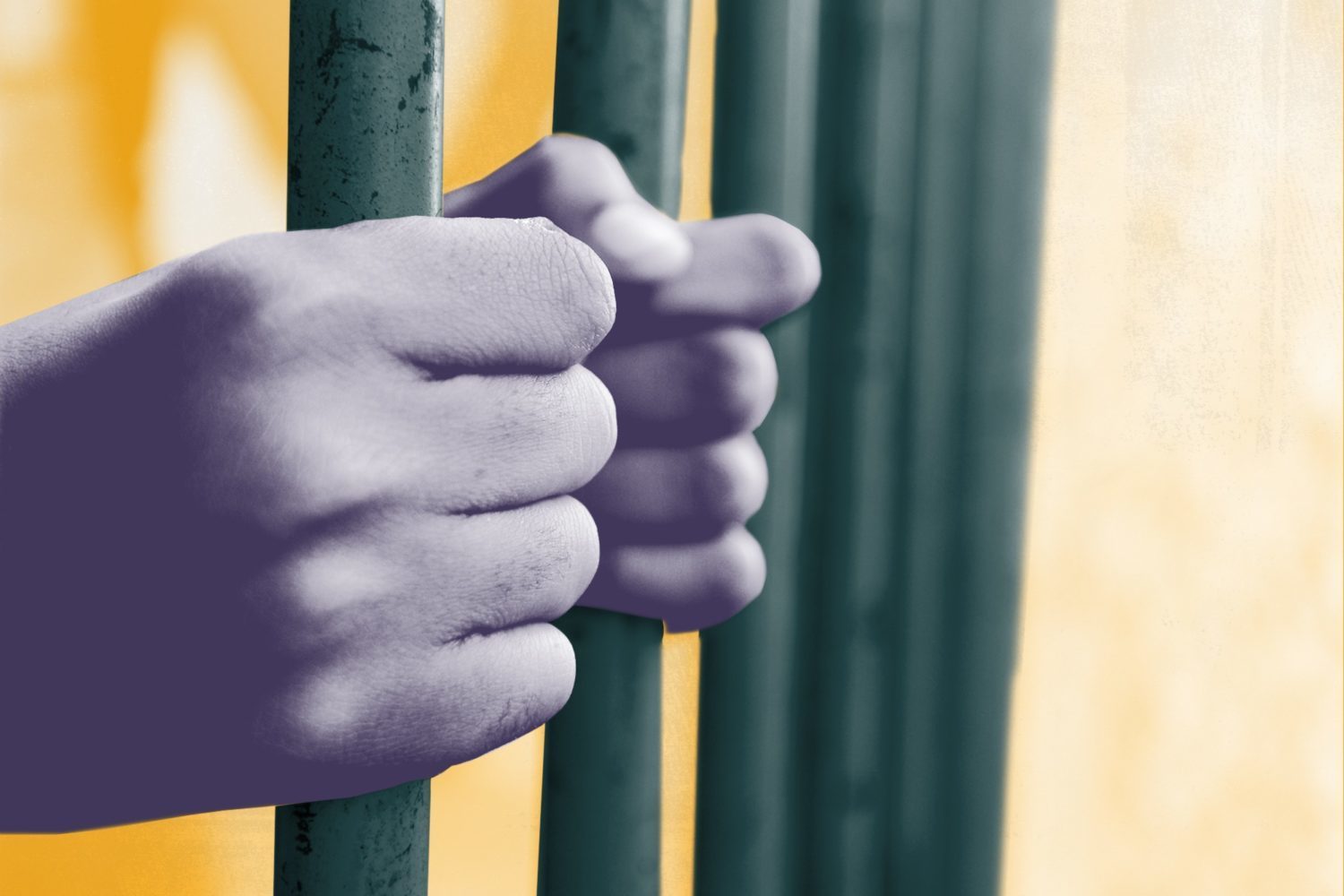A Transgender Woman’s Attorneys Fear She Won’t Survive Her 60-Month Sentence
New York attorneys have launched a campaign to release transgender, gender nonconforming, and nonbinary prisoners during the pandemic.

In the fourth grade, A.A. was hit by a ball during basketball practice. At the time, she lived as a boy with her grandmother in New Jersey. Her mother had died when she was three.
The ball split her lip open. The coach took her to the bathroom, where he forced her to perform oral sex, according to a report from a social worker for the Legal Aid Society, which represents A.A. She is not named in legal filings to protect her safety. The coach molested A.A. until she quit the team in sixth grade, according to the report.
As a young adult, she would be sexually assaulted several more times.
In 2011, two years after graduating high school, she moved to New York City. At the time, she said her grandmother would not accept her as a transgender woman. In New York, she went to a shelter and was sexually assaulted, according to the Legal Aid report.
She became homeless, supporting herself with sex work, until she met a man who provided her with a hotel room to stay in. He forced her to continue to engage in sex work and took her earnings. “If l tried to leave,” she told Legal Aid, “there’d be fights, threats. He’d strip off my hair, embarrassing me in front of my friends.” According to the New York State Office of Temporary and Disability Assistance, A.A. qualifies as a victim of human trafficking.
And like many others who have been sexually and economically exploited, she is now incarcerated in a New York state prison. In 2018, A.A. was convicted of attempted burglary in the second degree and sentenced to 60 months. Housed in a men’s prison even though she is a woman, she has been sexually assaulted by both prisoners and correctional officers, according to Legal Aid.
A Department of Corrections and Community Supervision (DOCCS) spokesperson told The Appeal in an email that the department’s investigation found A.A.’s allegation of sexual assault to be “unsubstantiated.” According to the department’s 2018 report on sexual victimization, just under 2 percent of allegations of sexual harassment or abuse were deemed substaniated in 2016.
Her earliest possible release date is in 2022. But, as the novel coronavirus rampages through American prisons, her attorneys fear she won’t survive if she contracts the virus. A.A. has been diagnosed with HIV, an underlying condition that could lead to serious complications from COVID-19. She’s been given only one paper mask and a thin handkerchief to protect herself, according to her attorneys.
On May 21, Legal Aid, along with law firm Paul, Weiss, Rifkind, Wharton & Garrison LLP, filed a petition seeking her release. This effort is part of a litigation campaign by Legal Aid and Paul, Weiss to work for the release of transgender, gender nonconforming, nonbinary, and intersex (TGNCNBI) people from New York state prisons during the COVID-19 pandemic, said Erin Harrist, supervising attorney of Legal Aid’s LGBTQ+ Law and Policy Unit.
“From having to address structural discrimination in all aspects of health, education, housing, medical care certainly, that leads to them having particular medical vulnerabilities,” she said. “This campaign really got started because of [Governor Andrew] Cuomo’s failure to meaningfully think about who needs to be released from the state prisons for their protection and their medical well-being.”
In April, advocates and elected officials sent a letter to Cuomo and the DOCCS acting commissioner, urging them to consider releasing people who are transgender, gender noconforming, nonbinary, and intersex. Public Advocate Jumaane Williams and several New York City Council members signed the letter, including Vanessa Gibson, who represents the West Bronx.
“At a time in which social distancing and self-quarantining are essential to flattening the curve, it is nearly impossible for incarcerated individuals to do so while serving time in prison,” Gibson said in a statement to The Appeal, noting that “TGNCNBI individuals represent one of our most vulnerable populations in the United States.”
Legal Aid and Paul, Weiss have also filed a petition seeking the release of Cathy Citro, a 63-year-old transgender woman convicted of criminal possession of stolen property in the fourth degree. She has Type 2 diabetes, asthma, and high blood pressure, according to the petition. She will be eligible for parole in December.
Like A.A., Citro is housed in a men’s prison. Incarcerating transgender women in men’s prisons puts them at risk of sexual violence and emotional distress, advocates say.
The DOCCS Transgender Placement Review Committee determines where a transgender person is housed, according to a department spokesperson. The committee considers, among other factors, “the incarcerated individual’s own views with respect to safety, as well as their gender identity, security level, criminal and disciplinary history,” the spokesperson told The Appeal in an email.
When asked if the department supports A.A. and Citro’s petitions, the spokesperson said it is reviewing prisoners who are within 90 days of their release date. The attorney general’s office, which represents the department in legal proceedings, told The Appeal to request comment from the DOCCS.
A.A. and Citro hope to help others whenever they do go home, according to their petitions. Citro plans to return to the Sylvia Rivera Law Project, a transgender civil rights organization, where she had previously worked as a paid intern. A.A. wants to attend mortuary school.
“I’ve buried so many people—my mom, my gay mom, friends,” said A.A., according to Legal Aid’s petition. “I want to make the last moments people have with their loved ones beautiful.”
